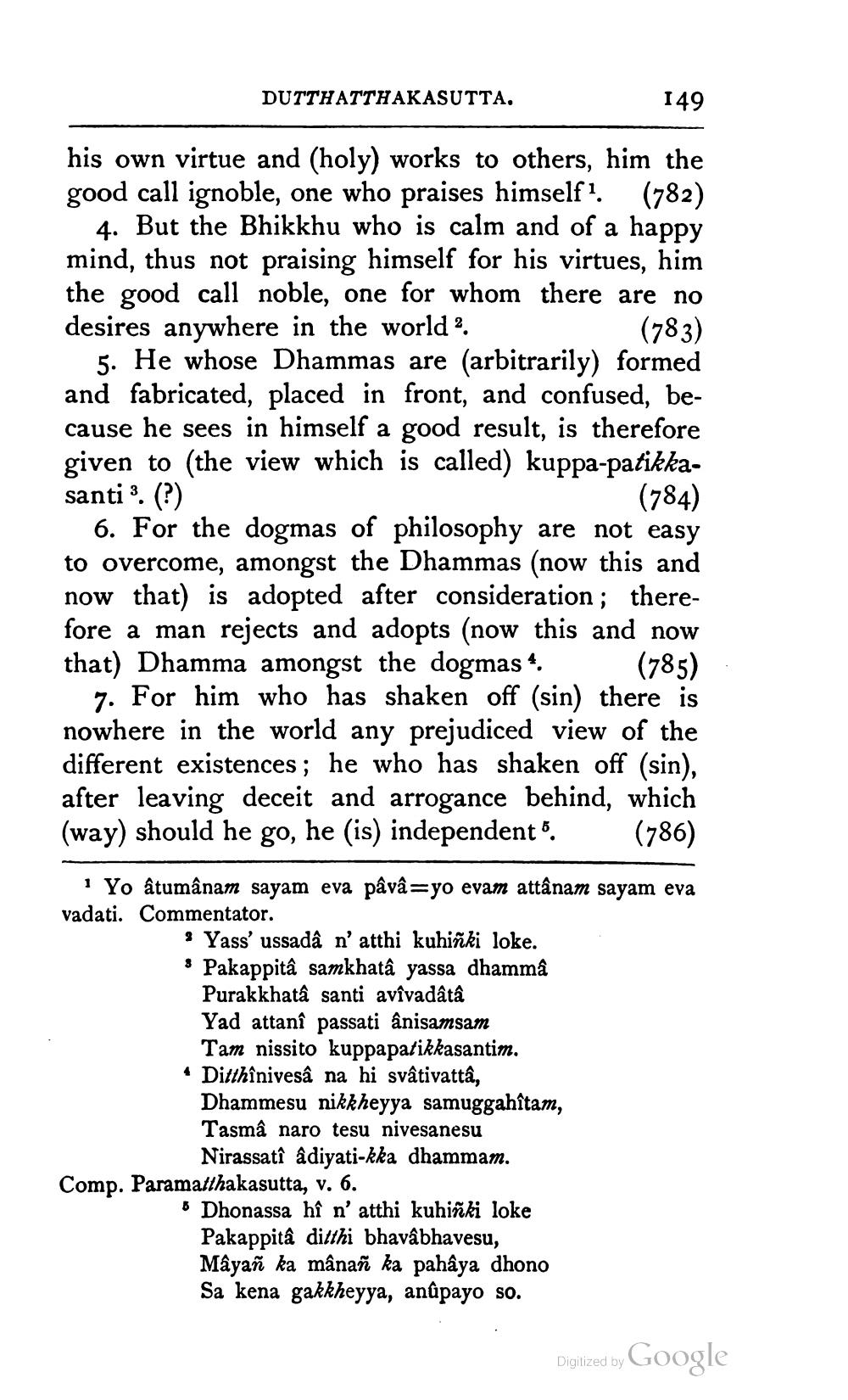________________
DUTTHATTHAKASUTTA.
149
his own virtue and (holy) works to others, him the good call ignoble, one who praises himself?. (782)
4. But the Bhikkhu who is calm and of a happy mind, thus not praising himself for his virtues, him the good call noble, one for whom there are no desires anywhere in the world 2
(783) 5. He whose Dhammas are (arbitrarily) formed and fabricated, placed in front, and confused, because he sees in himself a good result, is therefore given to the view which is called) kuppa-patikkasanti 3. (?)
(784) 6. For the dogmas of philosophy are not easy to overcome, amongst the Dhammas (now this and now that) is adopted after consideration; therefore a man rejects and adopts (now this and now that) Dhamma amongst the dogmas 4 (785)
7. For him who has shaken off (sin) there is nowhere in the world any prejudiced view of the different existences; he who has shaken off (sin), after leaving deceit and arrogance behind, which (way) should he go, he (is) independent 6. (786)
1 Yo âtumânam sayam eva pâvâ=yo evam attânam sayam eva vadati. Commentator.
. Yass' ussadâ n'atthi kuhiñki loke. : Pakappitâ samkhatâ yassa dhammâ Purakkhatâ santi avivadâtâ Yad attanî passati ânisamsam
Tam nissito kuppapatikkasantim. + Ditikinivesi na hi svậtivatta, Dhammesu nikkheyya samuggahîtam, Tasmâ naro tesu nivesanesu
Nirassatî âdiyati-kka dhammam. Comp. Paramatthakasutta, v. 6.
• Dhonassa hî n'atthi kuhiñki loke
Pakappitâ ditthi bhavâbhavesu, Mâyañ ka mânañ ka pahaya dhono Sa kena gakkheyya, anûpayo so.
Digitized by Google




